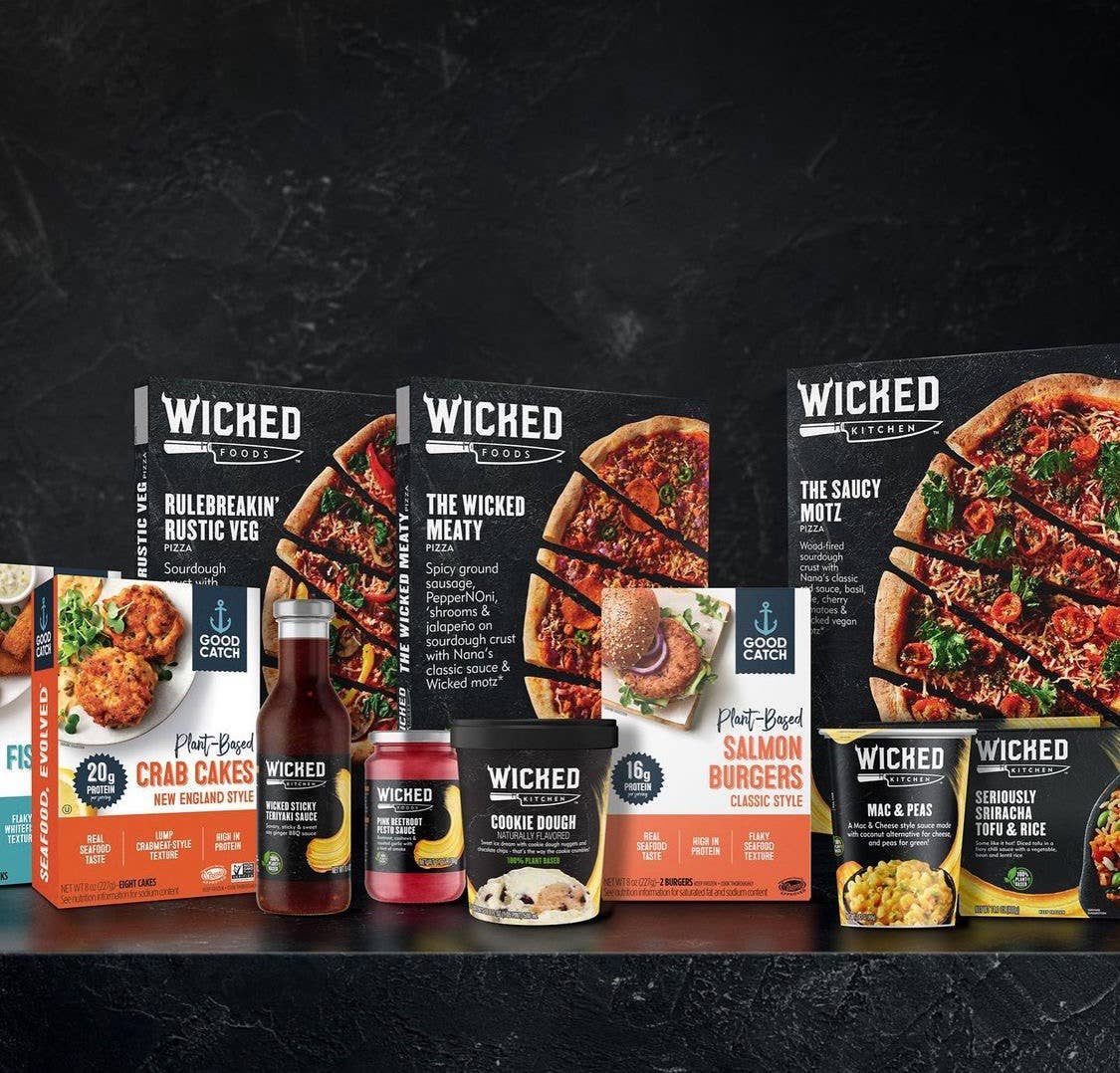
Report: Alternative Protein Will Make Up 64 Percent of Global Protein Market
Together, the plant-based and cultured meat markets have experienced unprecedented growth over recent years as consumers worldwide begin to prioritize sustainable and nutritious foods. A new research report from the investor network FAIRR Initiative has found that the alternative protein market could amount to 64 percent of the global protein market by 2060. The report analyzed 25 major international companies including Tesco, Unilever, Nestle, and more to record how the growing alternative protein industry affected them.
“The pandemic has been a stress test for the animal protein industry, exposing the vulnerabilities of today’s intensive centralized production system,” the report reads. “It has brought urgent focus on the need for resilience in the face of growing sustainability challenges in an increasingly resource-constrained world. It has also been a catalyst for accelerating innovation in food technology and driving government level action – with a focus on healthier, more sustainable diets and long-term food security.”
The research report concluded that 28 percent of the major global food companies surveyed have enacted specific procedures and objectives to grow their alternative protein selections. The FAIRR Initiative points out that three years ago, not one company recognized or announced any attempts to expand or develop a plant-based or cultured protein portfolio.
Now, major companies worldwide have shifted advertising and marketing techniques to catch the attention of plant-based consumers. The population of plant-based consumers continues to increase at an accelerated pace, amounting to a significant percentage of the total number of consumers globally. Major companies that would previously not acknowledge plant-based products, now highlight the vegan, cell-based, or plant-based product within their portfolios.
“Companies are also changing their use of language, with an increasing use of terms previously considered niche, such as ‘plant-based or ‘vegan’. 92 percent of the 25 companies in FAIRR’s engagement referred to these terms in their quarterly and annual reports to investors and other stakeholders,” the report reads.
Alongside rising consumer interest, investors have also increasingly entered the alternative protein sector. In 2020, private investments for plant-based, fermentation-based, and cultured meat technologies amounted to $3.1 billion, a 300 percent spike compared to 2019. Although the entire alternative protein market saw significant investor interest, alternative chicken gained the most traction. The report found that the alternative chicken sector secured $2 billion since 2020, exceeding all other alternative protein markets.
Cultured meat is a central component of the FAIRR report, accounting for a substantial percentage of the overall alternative meat market. The report found that the cultured meat sector received $506 million in investments in 2020, breaking records for the sector. Cultured meat is rapidly becoming accepted in the global marketplace as several countries begin to enact regulatory approval for cell-based meat companies.
“The shift towards sustainable proteins will prove an essential tool for addressing serious climate risk, whilst also meeting the demand for nutritious food in a resource-scarce world,” Head of Stewardship and Sustainable Investing at investment firm Fidelity International Jenn-Hui Tan said. “We’re seeing increased regulation to facilitate that shift: Canada, Israel, and Singapore have positioned themselves as first-movers in alternative protein development and investment, with Singapore this year becoming the first country in the world to approve cultured meat for sale.”
The alternative protein market is rapidly picking up pace as both plant-based products and cultured meat innovations gain widespread acceptance and popularity. The report explains that the low growth scenario predicts that the industry would take up 16 to 22 percent of the entire protein market. The high growth projection places the alternative protein market as 62 to 64 percent of the global markets, based on the sharp increase in investment over recent years.
“With other countries poised to follow suit, investors should be aware of the impacts and opportunities within this shift and food companies should be innovating at pace,” Tan continued.
The Surprising Reasons these Five Country Singers Went Meat-Free
1. Carrie Underwood Loved Her Family's Farm Animals
Seven-time Grammy Award winner Carrie Underwood has been hailed for her “enormous” vocal range. When it comes to her diet, Underwood’s a fan of breakfast burritos and lots of tofu. She doesn’t shy away from the carbs, either. According to Cheat Sheet, one of her favorite snacks is a toasted English muffin with peanut butter.
2. Blake Shelton Wants to Keep Up With His Older Girlfriend
Singer, songwriter, and “The Voice” coach, Blake Shelton, 43, has been working to stay fit recently with help from his long-time love, Gwen Stefani, who is a vegetarian and told him to get off the meat if he wants to feel fitter and lose some weight. Shelton has been trying to keep up with Stefani's impressive fitness level, according to an interview Stefani gave this fall. The former No Doubt singer and Hollaback girl is a longtime vegetarian, eats a mostly vegan diet, and is super fit-- and at 50, looks younger than her years. A source told Gossipcop, “Gwen’s told him the way to lose it is to stay the hell away from meat and bad carbs.” We're rooting for him!
3. Shania Twain Has the Key to Gorgeous Skin
The best-selling female country music singer in history isn’t buying any expensive steak dinners after a performance. The “Queen of Country Pop” has sold more than 100 million records but says she keeps her meat-free diet simple. She is both vegetarian and eats very little dairy -- though at times has said she does eat eggs.
4. Annette Conlon, Folk Artist with a Passion
Americana singer and songwriter Annette Conlon is also a passionate vegan. She started “The Compassionette Tour,” in an effort to bring compassion, social consciousness, human interaction, and animal issues to a mainstream audience.
5. Johnny Cash, Walked the Vegan Line Late in Life
The Man in Black is synonymous with country music, even nearly two decades after his death (1932-2003), probably in part because of the biopic about his life starring vegan actor Joaquin Phoenix. Ask any die-hard country music fan (or your dad, for that matter) and they will tell you that Johnny Cash was one of the best-selling musicians of all-time. His scores of hits include “I Walk the Line” and "Hurt" "A Boy Named Sue" and dozens of others. Cash himself was believed to have lived meat-free later in life to help combat some health issues. At Johnny Cash’s Kitchen and Saloon in Nashville, you can also load up on the meat-free dishes as the restaurant boasts a fully stacked veggie menu that includes greens, sweet potato mash, and fried okra.
More From The Beet






